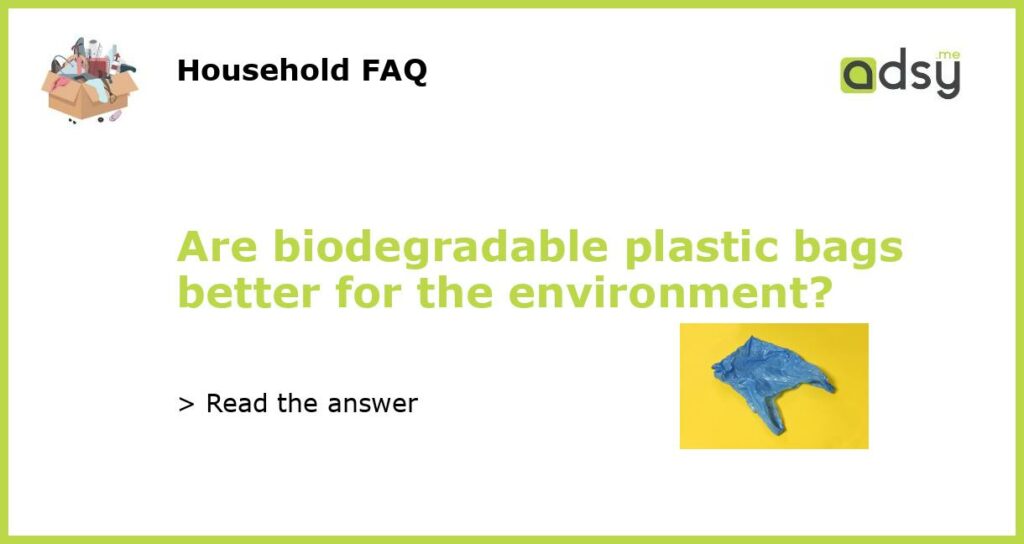What are biodegradable plastic bags?
Biodegradable plastic bags are a type of plastic bag that is designed to break down more quickly in the environment compared to regular plastic bags. They are often made from plant-based materials, such as cornstarch, that can be broken down by microorganisms.
Why are they considered better for the environment?
Biodegradable plastic bags are often marketed as a more eco-friendly alternative to traditional plastic bags. The main argument is that they will eventually break down into non-toxic components in the environment, reducing their impact on wildlife, ecosystems, and landfill waste. However, the reality is more complex.
The complex reality of biodegradable plastics
While biodegradable plastic bags may sound like a better option for the environment, there are several factors to consider. First, the term “biodegradable” is not regulated or standardized. There is no universal definition of what it means for a plastic product to be biodegradable, which can result in confusion and misleading claims.
Second, biodegradable plastics often require specific conditions to break down properly. They may need high temperatures, UV light exposure, or specific microorganisms present in the environment. Without these conditions, the bags may not fully biodegrade and can still persist in the environment for a long time.
Additionally, the production and disposal of biodegradable plastics can still have negative environmental impacts. The production process for some biodegradable plastics still contributes to greenhouse gas emissions and relies on the extraction of finite resources. Moreover, if biodegradable bags end up in landfills where these specific conditions are not present, they may release methane, a potent greenhouse gas.
What are some alternatives to biodegradable plastic bags?
Instead of relying solely on biodegradable plastic bags, there are several other alternatives available that are considered more sustainable. These alternatives include:
1. Reusable bags: Reusable bags made from materials like canvas, cotton, or recycled plastics are a more sustainable option. They can be used multiple times and reduce the need for single-use plastic bags.
2. Paper bags: Although paper bags also have environmental impacts, they can be recycled and are often made from renewable resources like trees.
3. Compostable bags: Compostable bags are designed to break down into organic matter in a composting facility. However, it is important to note that compostable bags should not be placed in regular recycling or compost bins as they require specific conditions to decompose properly.
4. Avoiding plastic bags altogether: The most sustainable option is to avoid using plastic bags whenever possible. This can be done by bringing your own reusable bags or opting for packaging alternatives like cardboard boxes or jars.
The importance of reducing overall plastic consumption
While biodegradable plastic bags may have some environmental benefits compared to traditional plastic bags, the most significant impact can be achieved by reducing overall plastic consumption. Plastic pollution remains a pervasive problem, and even “eco-friendly” solutions have their limitations.
Reducing the demand for single-use plastic products, including plastic bags, can help decrease the amount of plastic waste that ends up in landfills and ecosystems. This can be done through individual actions such as using reusable bags, supporting businesses that prioritize sustainable packaging, and advocating for stricter regulations on single-use plastics.
In conclusion, while biodegradable plastic bags are often marketed as a more environmentally friendly alternative to traditional plastic bags, the reality is more complicated. The term “biodegradable” is not regulated, and these bags often require specific conditions to break down properly. There are also other alternatives available, such as reusable bags and compostable bags, that are considered more sustainable. Ultimately, the most important step towards a healthier environment is reducing overall plastic consumption and advocating for more sustainable practices.






